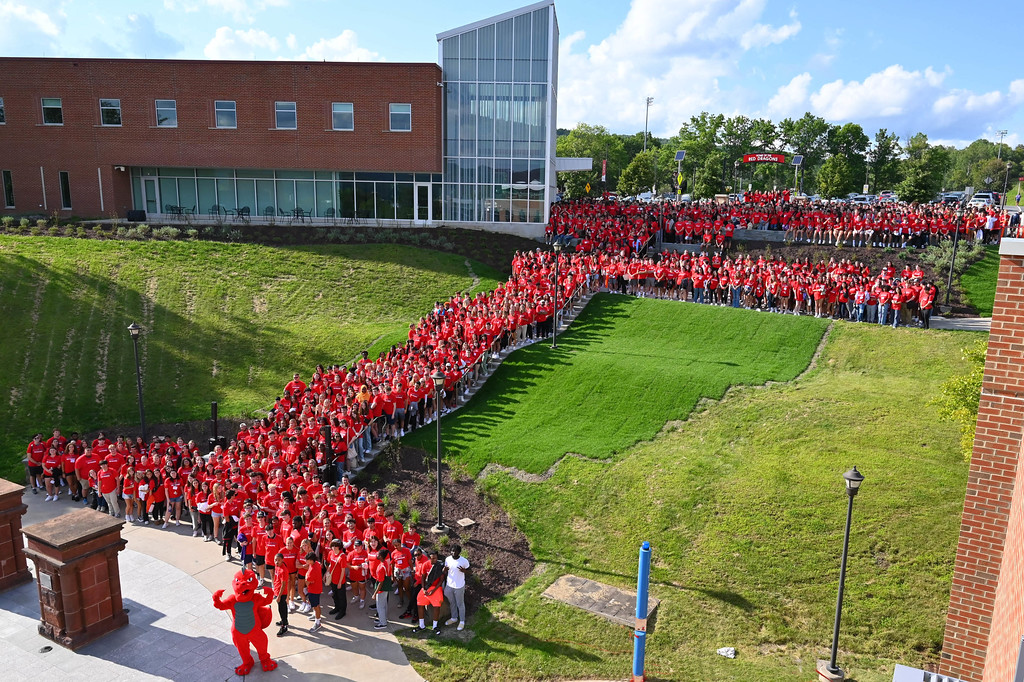

This catalog is current as of June, 2024. The State University of New York at Oneonta reserves the right to make changes in policies, requirements, and regulations as conditions change and such revisions are necessary subsequent to the catalog’s publication.
All students are expected to have knowledge of the information contained in this publication and others, including the Student Handbook and the academic advisement materials explaining individual programs.
This catalog describes all current undergraduate programs of SUNY Oneonta. For graduate program information, see the current Graduate Catalog. This is the official undergraduate catalog of record.
The State University of New York at Oneonta is accredited by Middle States Commission on Higher Education (MSCHE), 3624 Market Street, Philadelphia, PA 19104, (215) 662-5606. The MSCHE is an institutional accrediting agency recognized by the U.S. Secretary of Education and the Commission on Recognition of Postsecondary Accreditation. The University is also accredited by the New York State Education Department.
The Dietetics Program is accredited by the Accreditation Council for Education in Nutrition and Dietetics.
The Chemistry program has been approved by the American Chemical Society.
SUNY Oneonta is a member in good standing of the Association for Advancing Quality in Educator Preparation (AAQEP), a national accrediting organization recognized by the Council for Higher Education Accreditation. All education programs at SUNY Oneonta have been awarded full accreditation by AAQEP through June 30, 2030.
The Department of Music is accredited by, and is a member of the National Association of Schools of Music.
The business programs are accredited by AACSB International—the Association to Advance Collegiate Schools of Business.
The Theatre Department is accredited by, and is an Associate member of the National Association of Schools of Theatre.
In compliance with the Federal Title II Campus Crime Awareness and Campus Security Act, a report of campus safety and security programs and incidents of crime on the campus is available from the Admissions Office, Welcome Center, SUNY Oneonta, Oneonta NY 13820-4016.
SUNY Oneonta, in its continuing effort to seek equity in education and employment, and in support of federal and state anti-discrimination legislation, has adopted a complaint procedure for the prompt and equitable investigation and resolution of allegations of unlawful discrimination on the basis of race, color, national origin, religion, creed, age, sex, sexual orientation, disability, gender identity, familial status, pregnancy, predisposing genetic characteristics, military status, domestic violence victim status, or criminal conviction.
Harassment is one form of unlawful discrimination on the basis of the above protected categories. The university will take steps to prevent discrimination and harassment, to prevent the recurrence of discrimination and harassment, and to remedy its discriminatory effects on the victim(s) and others, if appropriate. Conduct that may constitute harassment is described in the Definitions section of the full policy. Sex discrimination includes sexual harassment and sexual violence. Retaliation against a person who files a complaint, serves as a witness, or assists or participates in any manner in this procedure is strictly prohibited and may result in disciplinary action.
At SUNY Oneonta, this policy is primarily administered by the Affirmative Action Officer/Title IX Coordinator (“AAO”).
135C Netzer Administration Building
607-436-2835
jennifer.westmoreland@oneonta.edu
To see the full text of the university’s policy and for more information, please visit: suny.oneonta.edu/affirmative-actiontitle-ix.
SUNY Oneonta is an academic community that values diversity. Diversity at SUNY Oneonta is an inclusive value that encompasses race and ethnicity, nationality, religion, gender, sexual orientation, sexual identity and gender expression, age, ability, socio-economic status, and other aspects of identity.
As a campus community, we believe that every individual is important in a unique way and contributes to the overall quality of the institution. We are committed to recruiting and retaining diverse faculty, staff, and students, and to fostering a learning environment which draws strength from, celebrates, and honors diversity. We strive to eliminate prejudice and discrimination; to respect the dignity of all persons; and to learn from differences in people, ideas, experiences and opinions.
Originally approved 2004. Revised and approved by the President’s Council on Diversity, 2007
Originally approved 2004. Revision approved by the President’s Cabinet, 2007